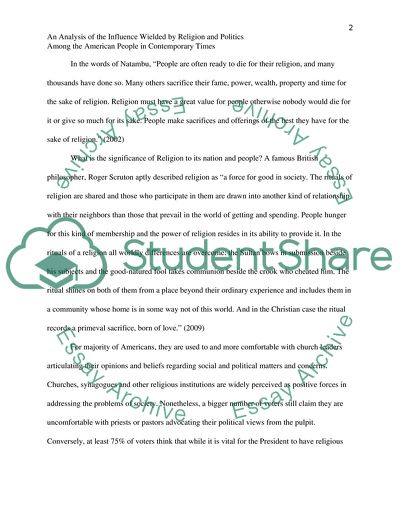Cite this document
(Religion and Politics among the American People in Contemporary Times Research Paper, n.d.)
Religion and Politics among the American People in Contemporary Times Research Paper. Retrieved from https://studentshare.org/religion-and-theology/1749495-religion-and-politics-in-the-united-states
Religion and Politics among the American People in Contemporary Times Research Paper. Retrieved from https://studentshare.org/religion-and-theology/1749495-religion-and-politics-in-the-united-states
(Religion and Politics Among the American People in Contemporary Times Research Paper)
Religion and Politics Among the American People in Contemporary Times Research Paper. https://studentshare.org/religion-and-theology/1749495-religion-and-politics-in-the-united-states.
Religion and Politics Among the American People in Contemporary Times Research Paper. https://studentshare.org/religion-and-theology/1749495-religion-and-politics-in-the-united-states.
“Religion and Politics Among the American People in Contemporary Times Research Paper”, n.d. https://studentshare.org/religion-and-theology/1749495-religion-and-politics-in-the-united-states.


